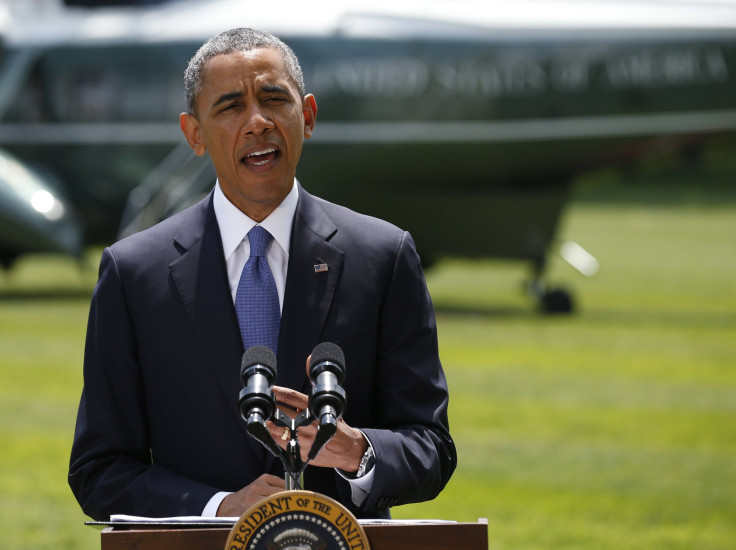275 Marines Into Baghdad Not Necessarily Sign of American Military Return To Iraq

In the days since the Islamic State of Iraq and Syria (ISIS) captured the Iraqi city of Mosul, escalating the sectarian conflict in the country, President Obama has insisted that he will not commit U.S. ground troops to the country to assist the Iraqi government.
But on Monday, the president announced that he is sending 275 U.S. troops to Baghdad to protect the U.S. Embassy. Obama has said they are there to protect U.S. citizens and property, but added that they will be equipped for combat. The U.S. is evacuating staff from Baghdad and sending personnel to stations in Erbil, in Iraq’s Kurdish-controlled territory, and Basra, in the country’s south. Obama did not set a date for the troops’ withdrawal: “This force will remain in Iraq until the security situation becomes such that it is no longer needed," he said.
Prior to the public announcement of this decision, the president obtained the consent of the Iraqi government and has notified the U.S. Congress under the War Powers Resolution. Nevertheless, for a president who had campaigned in 2012 on his withdrawal from Iraq the previous year, the decision to send troops to Iraq may be seen as a reversal. Does this mean the U.S. will re-engage in Iraq?
There are no signs that the Obama administration is considering a reoccupation of the country; the Pentagon has announced no plans to move more boots on the ground in Iraq. The only significant American military movement in the region is the deployment of an aircraft carrier to the Persian Gulf, from where it may launch airstrikes against ISIS targets.
Instead, the decision to send 275 Marines to protect the embassy may reflect the president’s desire to avoid a repeat of a separate foreign policy headache: Benghazi. The 2012 attack on U.S. diplomatic and intelligence facilities in the eastern Libyan city has sparked intense criticism from the right, which accused the president of failing to provide adequate security there. The attacks led to the deaths of four Americans, including Ambassador J. Christopher Stevens.
Since capturing Mosul and the Sunni city of Tikrit, the birthplace of former Iraqi dictator Saddam Hussein, ISIS forces remain active in the provinces north and west of Baghdad -- but an advancement into Iraq’s south is unlikely. In an interview with Yahoo News correspondent Katie Couric, Secretary of State John Kerry expressed skepticism that the Sunni militants of ISIS will be able to capture the capital, whose 3.8 million population is thought to be 90 percent Shia.
At their peak in 2007, American forces numbered 170,000 in Iraq. In 2008, then-President Bush signed the Status of Forces Agreement with the Maliki government, stipulating the gradual withdrawal of American forces from the country. This process became complete in 2011, after Obama was unable to obtain assurances from Maliki that U.S. troops would be immune from prosecution in Iraqi courts.
© Copyright IBTimes 2024. All rights reserved.






















